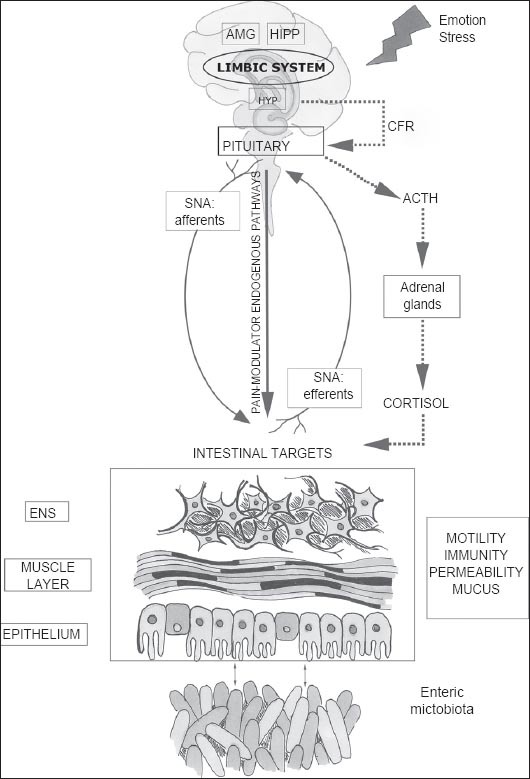Confronting the Underlying Causes of Your Anxiety
Anxiety a familiar sensation to 99.9% of the people on the planet. It often strikes with an uncomfortable symphony of symptoms. It causes the face to flush, the chest to tighten, palms to sweat, mind to race, and heart to pound until, it slowly subsides and disappears as calmly as it came on – unless, of course, it doesn’t.
For some people, anxiety feels less like the occasional wave and more like an ocean - one that they’re drowning in. For patients who find themselves regularly confronted with anxiety, the challenge becomes discovering and confronting the underlying causes.

Classifying the Primary Types of Anxiety
As you might imagine, anxiety is clinically classified into several different categories, according to differences in symptoms, severity, and situational occurrence. General Anxiety Disorder (GAD) is the intrusive (and occasionally debilitating) worry that interferes with your daily activities for a period of three months or more. Social Anxiety Disorder (or Social Phobia) is the experience of heightened anxiety-related symptoms in association with social situations and interpersonal interactions. Anxiety can also manifest in the form of obsessive compulsive disorder, panic disorder, or posttraumatic stress disorder. For the purpose of this article, we’ll focus specifically on the common underlying causes of GAD.
Curious to learn if acupuncture can treat anxiety?
How Acupuncture for Anxiety Works
Causes of Anxiety
Unrelated physical problems may be responsible for your symptoms, but a cursory conversation may not be enough to reveal the root cause. That’s why it’s so important to work with an integrative health professional capable of investigating the big picture – lifestyle, health history, physical body, nutrition, genetics, and mental landscape – rather than settling for symptomatic treatments that do little more than mask the problem.
- Lack of Oxygen
People living at high altitudes or suffering from emphysema or pulmonary embolism (a blood clot in the lung), are at higher risk of anxiety-related symptoms. It is also quite well established that people with anxiety disorders do not breath fully leading to chemical imbalance in blood and perpetuating the anxiety feeling. To prevent this dedicate some time to focus on breathing deeply and fully. This will train your body to do this when you are not thinking about it. When you are in a particular stressful situation, use breathing to gain better control over you mind.
- Heart Abnormalities
Abnormal heart rhythms and other heart abnormalities (such as mitral valve prolapse, and arrhythmia) may be a contributing factor to anxiety. These can cause palpitations (sensation of your heart beating) which leads to worry, stress, and anxiety about your heart.
- Phobic Disorders, Stress Disorders, or Chronic Stress
Whether it's stress from a serious medical illness or an on-going life circumstance that presents significant hardships, these stressors serve to stoke the fire of anxiety.
- Exposure (acute or chronic) to environmental toxins
Contaminating your body can cause changes to the blood-brain barriers and neuronal membranes, leading to inflammation and neurochemical imbalance. Some examples that I have seen causing this include lead, mercury, ad pesticides.
- Sub-par Sleep
Poor sleep or sleep disorder can lead to elevated levels of cortisol and other stimulant hormones. I think of good sleep like an anxiety buffer. If you are not getting good sleep more things will trigger worry and unclear thinking.
- Gaps in Nutrition
Sustaining erratic eating patterns, consuming high quantities of processed foods, and/or ignoring your body’s needs for whole foods Can lead to gaps in your vitamin and nutrient levels. Many times deficiencies in vitamins and minerals are the central cause for mood disorders. The food we consume also contributes to our blood sugar levels. Erratic blood sugar could be a trigger for your anxiety or at least make it worse.
- Substance Abuse
Whether it’s alcohol, drugs, caffeine, amphetamines, or refined sugar – abusing any such substance alters your body’s chemical balance. When these are consumed you feel fine but when they are not in your system you will have withdrawal symptoms which make your anxiety worse. Even if you are engaging in these activities infrequently, with drawl can have effects that last days to weeks. Check out Dangers of Benzodiazepines for more on this subject.
- Organic Imbalances in Neurochemistry
In some cases, Anxiety Disorder can be pinned on an external or extenuating factor, and in some cases – it’s just the natural occurrence for your bodies neurotransmitters. In these instances, patients often require a more in-depth treatment, focusing on holistic neurotransmitters rebalancing and/or cognitive behavioral therapy.
If you are struggling with anxiety, let me give you some simple advise. Focus your attention on the things you can control (many of which are mentioned above) not the things you cant'.
Learn how to:
Tackle Stress and Anxiety Naturally with Acupuncture




















